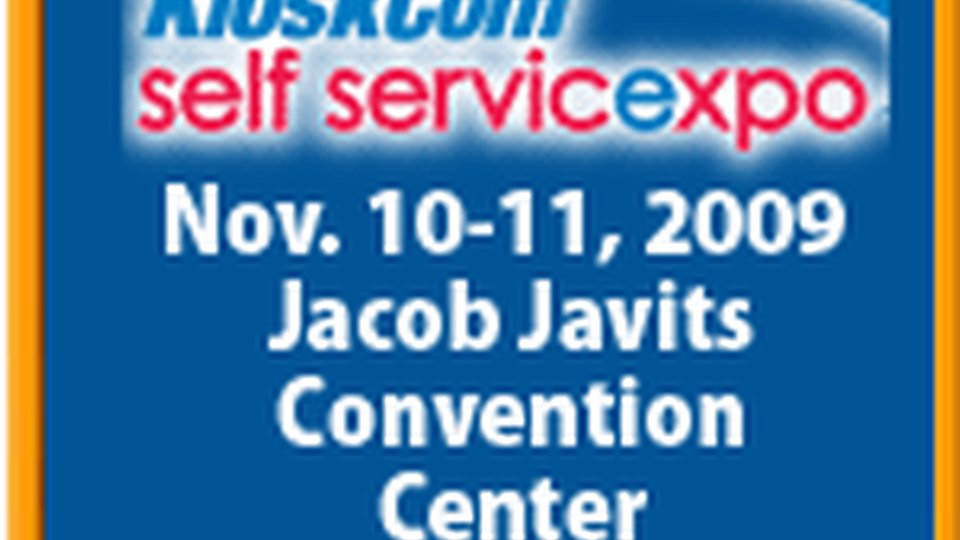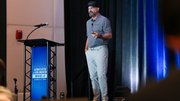Article
5 questions: Lawrence Dvorchik, general manager, KioskCom Self Service Expo
The man behind the event talks about content highlights, exhibitor feedback and possible changes to next year's shows.

November's KioskCom Self Service Expo and The Digital Signage Show was, by most accounts, a success. Throughout 2009, the tradeshow industry has struggled with diminishing attendance, but according to Joel Davis, founder and CEO of KioskCom organizer JD Events, registration this year was up 5 percent over the 2008 New York event. This time around, the KioskCom team focused on offering a fresh slate of content and continued to concentrate on its rigorous prequalification process for all registered attendees.
Lawrence Dvorchik, general manager of KioskCom and The Digital Signage Show, spoke with SelfServiceWorld.com about the feedback he received and what the show has in store for 2010.
KM: What kind of reaction have you gotten from exhibitors about the New York event?
LD: The feedback we received was very, very positive, both in terms of the quality and the quantity of leads that everybody met with and, more importantly, the quality and quantity of real, viable opportunities that they're going to be involved in based on conversations they had at the show.
Exhibitors were just plain busy, and they were busy with real potential projects and prospects. People made it a point of letting us know that they were busy because every discussion that they had was a nice, long discussion and could turn into potential business.
KM: On the kiosk side of the show, what do you think were the highlights, in terms of programming?
LD: I think the Coinstar bit on the kiosk side really opened up eyes [Ed. note: Coinstar president Gregg Kaplan gave the show's opening keynote presentation]. I think it was one of the best received keynotes we've had, in terms of audience and size, not to mention the feedback and buzz it created. I think it was just a phenomenal way to (start). Gregg just opened up to everybody. To see the growth of what he's done from (founding Redbox) when it was just a piece of McDonald's, basically, to where it is now, you look at it and go, "In five years, look what you've done."
|
Lawrence Dvorchik is general manager of the KioskCom Self Service Expo and The Digital Signage Show. |
KM: Coinstar's "Big Idea" contest also was well-received. Will it occur at future KioskCom events?
LD: I'd like to run it forever, at every single event, because I think it continues to spur creativity and innovation. But I'm not the one putting up the grand prize.
Honestly, the reason I would love to keep this or something like this as an ongoing feature is because it really fine-tunes people's business plans. Even for the people that didn't win, just going through the exercise helped them fine-tune their plan and opened them up to connections that they may not have had or people that they may not have had to look at it and say, "Hey, this was good, but if you do these three things, you've really got something here. Pay attention to that and come back to us with it." So it gives opportunities for more people to be exposed to that, especially in today's climate where it's so hard to get some of these projects off the ground because funding is so limited.
KM: Typically the New York show is perceived as smaller than the spring event in Las Vegas, but they had similar turnouts this year, and reaction to the New York show seems more positive. How do you compare the two?
LD: The audiences between the two venues are over 90 percent unique/unduplicated, which presents a fantastic opportunity for exhibitors to meet new customers and prospects at each event. The buyers that attend are different at each venue and each year.
So my feelings are that it's not a question of "which is bigger." The two venues are comparable in size, and are comprised of a different set of buying audiences. To me, it should be viewed as the next venue. It's the show, and it's the next venue of this show. Both shows are delivering comparable attendees and comparable content to educate everybody.
When we meet with the Board of Advisors, review all the feedback and start to implement the good suggestions, we don't say "OK, we are going to wait a full 12 months to implement the feedback." We implement changes and upgrades into the very next venue, so New York feeds into Vegas, Vegas feeds into New York, and it becomes more a question of, what is the next chapter? What is the next installment of this information and of these people? It moves physical locations, but when is that next installment and how do we make that installment better for everybody?
So that's really where our mindset is — taking it from one event to the next and building on the successes and also what needs to be fine-tuned and improved or launched at the very next venue. That venue could be anywhere. We're still going to look at it the same way, wherever it might be.
KM: What will be your No. 1 issue to tackle before April's event in Las Vegas?
LD: Our current focus is on creating an educational experience that provides deployers with "actionable knowledge" that they can use to grow and improve their companies. For example, we are knee-deep in how to structure and deliver the content in the best format. What changes need to be made to the educational sessions to make them even better for attendees? What is the best way to deliver and organize that information so that the attendees leave the show with actionable knowledge to deploy in their organizations right away?
 ChatGPT
ChatGPT Grok
Grok Perplexity
Perplexity Claude
Claude











